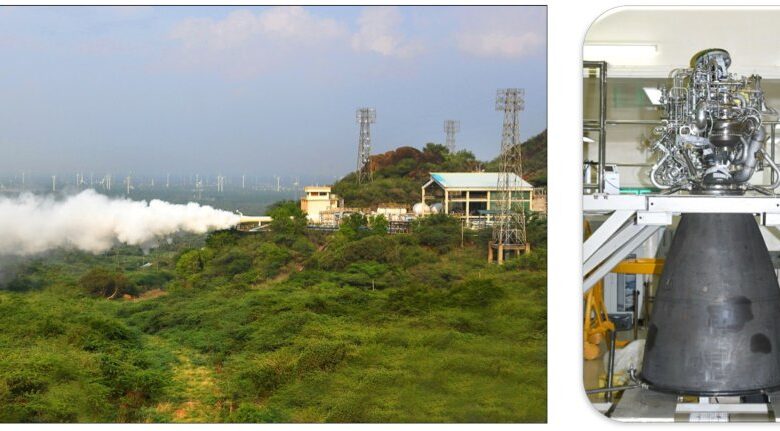ISRO Achieves Human Rating of CE20 Cryogenic Engine for Gaganyaan Programme

The Indian Space Research Organisation (ISRO) has reached a significant milestone in its Gaganyaan programme with the successful completion of the human rating process for its CE20 cryogenic engine. The CE20 engine powers the cryogenic stage of the human-rated LVM3 launch vehicle for Gaganyaan missions. The final round of ground qualification tests was concluded on February 13, 2024, marking a pivotal moment in India’s space exploration endeavors.
Conducted at the High Altitude Test Facility at ISRO Propulsion Complex, Mahendragiri, the series of vacuum ignition tests simulated flight conditions, ensuring the engine’s readiness for human spaceflight. The ground qualification tests encompassed life demonstration, endurance, and performance evaluations under both nominal and off-nominal conditions, including thrust variations, mixture ratios, and propellant tank pressures.
All ground qualification tests for the CE20 engine, essential for achieving human rating standards, have been successfully executed. Four engines underwent a total of 39 hot firing tests under diverse operational scenarios, accumulating a duration of 8810 seconds. This surpasses the minimum human rating qualification standard requirement of 6350 seconds, affirming the engine’s reliability and suitability for crewed missions.
Furthermore, ISRO has completed acceptance tests for the flight engine designated for the first unmanned Gaganyaan (G1) mission, slated tentatively for the second quarter of 2024. This flight engine, which will propel the upper stage of the human-rated LVM3 vehicle, boasts a thrust capability ranging from 19 to 22 tonnes and a specific impulse of 442.5 seconds. These accomplishments signify significant strides in India’s preparations for its ambitious human spaceflight program.




